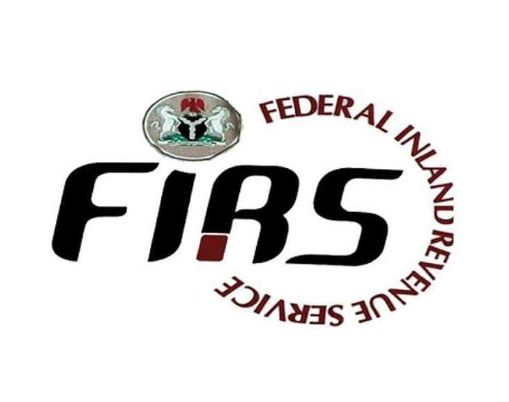Business
Thumbs up as Nigeria’s revenue agencies raise the bar

BY, MUSA ILALLAH
EMEKA ANYAOKU STREET ABUJA musahk123@yahoo.com
For the first time in Nigeria, the country’s major revenue generation and collection agency, Federal Inland Revenue Service with the acronym “FIRS” broke the jinx and did wonders for the country.
FIRS recorded N6.405 trn revenue in 2021 thus surpassing its target by more than 100%. What a great success.
This development keeps Nigerians wondering and asking questions as to why there was never a time the FIRS had ever collected 60% of set targets since its creation in 1947.
While giving FIRS’s 2021 Update recently, it’s Executive Chairman, Muhammad Nami was full of smiles when he disclosed that FIRS achieved over 100 percent of its collection target for the year 2021 in oil and non oil revenues despite the global economic challenges occasioned by the Coronavirus pandemic.
What most Nigerians find most interesting is the fact there is a paradigm shift in the country’s revenue collection from oil to non oil sector as the non-oil sector contributed 68.64% while oil sector’s contribution was 31.36% of total collection in the year under review.
“The Service issued certificates for the sum of N147.8 billion tax credit to private investors and NNPC for road infrastructure under the Road Infrastructure Development Refurbishment Investment Tax Credit Scheme created by Executive Order No. 007 of 2019.”
It is therefore not an exageration to attribute the FIRS’ giant stride to a number of factors, particularly the deployment of technological tools as its game-changer.
Some strategies the FIRS under Mr Nami’s leadership had done included strategic administrative and operational reforms; implementation of new policies towards improving FIRS capacity towards the fulfillment of its mandate, and appropriate deployment of all resources .
On its part, the Nigeria Customs Service, NCS, said it generated N2.23 trillion revenue in 2021 as against its target of N1.67 trillion representing a 43.45 per cent rise over the N1.5 trillion collected in 2020.
NCS also attributes the rise in its revenue generation profile annually to ongoing reforms; strict enforcement of extant guidelines by the tariff and trade department and automation of the customs process, thereby eliminating vices associated with the manual process and a proactive robust stakeholder engagement and sensitisation.
FIRS is today headed by Muhammad Mamman Mani as Executive Chairman. He is an accountant, management professional, tax administrator and public officer who had offered Management Services to clients in the Banking, Manufacturing Services and Public Sectors as well as Non- Profit organizations.
Other revenue collection agencies in the country include Nigeria Immigration Service, NIS; NNPC; FAAN, Nigeria Ports Authority, NPA; NTA; NRC and JAMB among several others.
The Federal Inland Revenue Service, FIRS is the agency responsible for assessing, collecting and accounting for tax and other revenues accruing to the Federal Government of Nigeria.
The Buhari Media Organisation, BMO also in its comments hailed the FIRS for effectively using technology to improve its productivity and exceed its 2021 collection target of N6.04trn despite global economic challenges.
BMO, in a statement signed by its Chairman, Niyi Akinsiju and Secretary, Cassidy Madueke, stated that it shows the level of creativity being deployed on President Muhammadu Buhari’s watch to make Nigeria depend less on oil proceeds.
“We are quite aware of efforts by some entrenched interests to literally stop the FIRS from using the technological tools it was bent on introducing as part of its reforms policy”.
BMO described the FIRS’s huge takings as another gain of Buharinomics.
This feat by FIRS is by no means a big challenge for all our revenue collection agencies to sit up and strive to aspire to collect more than 100% generation from this year.
For me, this is a task that must be done if the country must move away from taking both foreign and local loans from developed countries, World Bank, IMF
-

 Metro/Crime2 days ago
Metro/Crime2 days agoNigerian governor’s son dies in auto crash
-

 News4 days ago
News4 days agoCourt sends Oriyomi Hamzat, Ooni’s ex-Queen, School principal to remand
-

 Metro/Crime5 days ago
Metro/Crime5 days agoGunmen invade palace, as Monarch jump fence to escape
-

 Education2 days ago
Education2 days agoJAMB Fixes Date For 2025 UTME
-

 Osun News1 day ago
Osun News1 day agoNew Owa Obokun of Ijesaland emerges (Photo)
-

 Metro/Crime5 days ago
Metro/Crime5 days agoFormer Nigerian Minister dies (photo)
-

 Osun News2 days ago
Osun News2 days ago53 Convicts get Prerogatives of Mercy from Gov Adeleke (Full List)
-

 News5 days ago
News5 days agoFG declares 2-day public holiday





